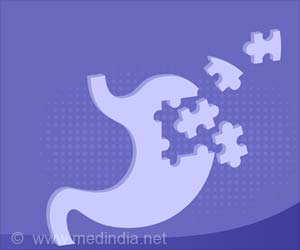- Mental disorders in young adults triple the risk of heart attack and stroke
- Lifestyle choices alone cannot explain the increased cardiovascular risk associated with mental disorders
- Regular health check-ups and targeted interventions are crucial for preventing myocardial infarction and stroke in this vulnerable population
Increased cardiovascular events in young patients with mental disorders: a nationwide cohort study
Go to source). The extra risk was not explained by lifestyle choices. One in every eight of the 20-to-39-year-old participants suffered from a mental condition, such as depression, anxiety, or insomnia.
Psychological Problems and Cardiovascular Health: Recommendations for Prevention and Improvement
“Psychological problems were common in young adults and had strong links with cardiovascular health,” said study author Professor Eue-Keun Choi of Seoul National University College of Medicine, Republic of Korea. “The findings indicate that these individuals should receive regular health check-ups and medication if appropriate to prevent myocardial infarction and stroke. While lifestyle behaviours did not explain the excess cardiovascular risk, this does not mean that healthier habits would not improve prognosis. Lifestyle modification should therefore be recommended to young adults with mental disorders to boost heart health.” This study looked at the relationship between mental problems and the likelihood of acquiring myocardial infarction and ischemic stroke in persons aged 20 to 39 years. The study made use of the Korean National Health Insurance Service (NHIS) database, which includes the whole population of the country. The study comprised 6,557,727 people aged 20 to 39 years who had health exams between 2009 and 2012 and had no history of myocardial infarction or stroke. The average age was 31 years, and more than half of the participants (58%) were 30 or older.Participants were monitored for new-onset myocardial infarction and stroke until December 2018. There were 16,133 myocardial infarctions and 10,509 strokes with a median follow-up of 7.6 years.2 The authors examined the relationship between mental disorders and cardiovascular outcomes after controlling for factors such as age, gender, high blood pressure, diabetes, high cholesterol, metabolic syndrome, chronic kidney disease, smoking, alcohol, physical activity, and income.
Participants who had any mental disorder had a 58% higher risk of myocardial infarction and a 42% higher risk of stroke than those who did not have any mental disorder. All mental disorders studied increased the risk of myocardial infarction, with magnitudes ranging from 1.49 to 3.13-fold. Looking at each condition separately, the risk of myocardial infarction was 3.13 times higher in those with PTSD, 2.61 times higher in those with schizophrenia, 2.47 times higher in those with substance use disorder, 2.40 times higher in those with bipolar disorder, 2.29 times higher in those with personality disorder, 1.97 times higher in those with eating disorders, 1.73 times higher for insomnia, 1.72 times higher for depression, 1.53 times higher for anxiety, and 1.49 times higher in those with eating disorders.
Except for PTSD and eating disorders, all mental health conditions increased the risk of stroke, with hazard ratios ranging from 1.25 to 3.06. Personality disorder had a hazard ratio of 3.06, schizophrenia had a ratio of 2.95, bipolar disorder had a ratio of 2.64, substance use disorder had a ratio of 2.44, depression had a ratio of 1.60, insomnia had a ratio of 1.45, anxiety had a ratio of 1.38, and somatoform disorder had a ratio of 1.25.
Mental Health, Age, and Gender as Key Factors in Cardiovascular Risk
The scientists also looked at the connections in terms of age and gender. Depression, anxiety, schizophrenia, and personality disorder were linked to an increased risk of myocardial infarction among participants in their twenties compared to those in their thirties. Furthermore, depression and insomnia were connected to a higher risk of heart attack and stroke in women than in males.Study author Dr. Chan Soon Park of Seoul National University Hospital, Republic of Korea, said: “Patients with mental health problems are known to have a shorter life expectancy than the general population, with the majority of deaths due to physical illnesses. Our study shows that substantial numbers of young adults have at least one mental health problem, which may predispose them to heart attack and stroke. Future research should examine the cardiovascular benefits of managing psychological problems and monitoring heart health in this vulnerable group.”
References:
- Increased cardiovascular events in young patients with mental disorders: a nationwide cohort study - (https://pubmed.ncbi.nlm.nih.gov/37156491/)















